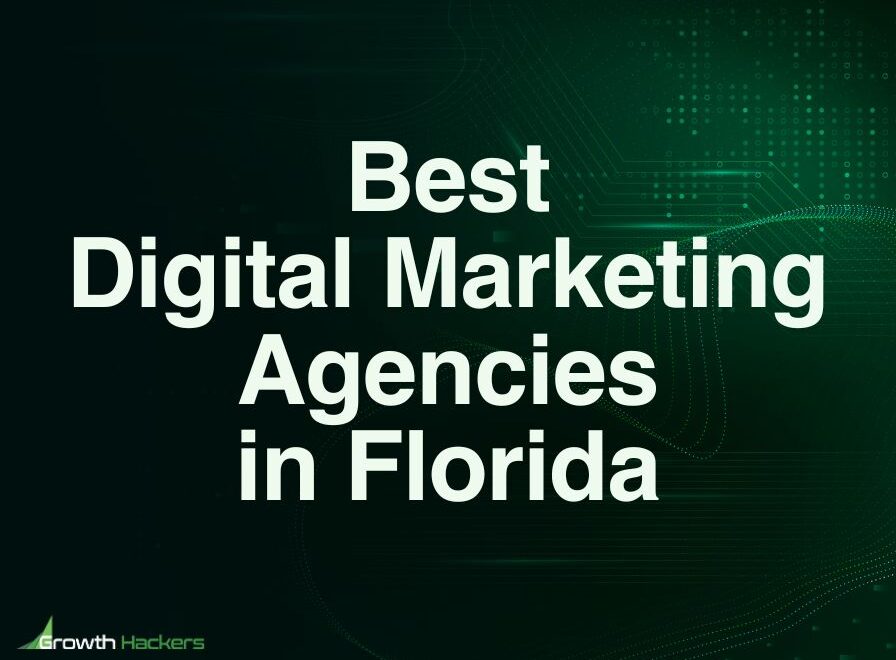In today’s digital landscape, Software-as-a-Service (SaaS) has emerged as a game-changer for businesses across various industries. But what exactly is SaaS marketing? How does it differ from traditional marketing approaches, and why must SaaS companies adopt effective marketing strategies? In this article, we’ll delve into the world of SaaS marketing and explore its significance in driving customer acquisition, retention, and overall business growth.
From understanding the unique challenges SaaS businesses face to leveraging targeted marketing techniques and metrics, we’ll provide valuable insights and actionable tips to navigate the dynamic realm of SaaS marketing successfully. So, whether you’re a SaaS entrepreneur, marketer, or simply curious about the intricacies of this specialized field, let’s embark on this journey to unravel the power of SaaS marketing and unlock new opportunities for your business.
What is SaaS Marketing?
SaaS Marketing, short for Software-as-a-Service Marketing, refers to the specific strategies and tactics employed to promote and sell software applications delivered through the SaaS model. In today’s digital landscape, SaaS has revolutionized the way businesses access and utilize software, offering cloud-based solutions that are scalable, cost-effective, and easily accessible.
SaaS Marketing is vital in promoting and positioning software applications. It involves understanding the unique challenges and opportunities of the SaaS industry, and employing tailored strategies to attract, engage, and retain SaaS customers while driving overall business success.
Why SaaS Marketing is Crucial for Business Success
In today’s competitive digital landscape, SaaS Marketing has become a critical component for the success of SaaS businesses. Here are several reasons why SaaS Marketing is crucial for achieving sustainable growth and staying ahead in the market.
Increased Customer Acquisition and Revenue Generation
SaaS Marketing is vital in driving customer acquisition and revenue generation for SaaS businesses. SaaS companies can attract and convert prospects into paying customers through targeted marketing strategies. By showcasing the value proposition, addressing pain points, and highlighting the benefits of the software, SaaS Marketing campaigns effectively drive conversions.
The ability to articulate the unique selling points of the SaaS product and demonstrate its value to potential customers is essential for attracting and acquiring new users. With a subscription-based model, each new customer represents recurring revenue, contributing to long-term business growth and profitability. Furthermore, successful customer acquisition strategies can lead to positive word-of-mouth referrals and organic growth, further expanding the customer base.
Enhanced Customer Retention and Loyalty
SaaS Marketing focuses on customer success and retention, which is crucial for long-term business success. SaaS businesses can reduce churn rates and retain a loyal customer base by providing ongoing support, delivering regular updates, and nurturing customer relationships. Satisfied customers are more likely to renew their subscriptions, upgrade to higher-tier plans, and recommend the software to others.
Most SaaS are subscription-based businesses so customer stickiness is vital to keep improving your customer lifetime value (CLV or CLTV) and retention rate. Building strong customer loyalty creates a stable revenue stream and reduces the costs of acquiring new customers. Additionally, loyal customers can serve as brand advocates, promoting the SaaS product through customer testimonials, case studies, and referrals, further boosting the company’s reputation and attracting new customers.
Targeted and Personalized Messaging
SaaS Marketing allows for highly targeted and personalized messaging, crucial for engaging with the right audience. SaaS marketers can craft tailored messages that resonate with specific customer segments by segmenting the target audience based on demographics, industry, or pain points.
This approach increases engagement, improves conversion rates, and enhances customer experience. Personalized marketing establishes trust and relevance, making customers feel understood and valued. By leveraging customer data and insights, SaaS marketers can deliver targeted messages through various channels, such as email marketing, content marketing, and even social media marketing and advertising. Tailoring messages to specific segments helps address their unique pain points and needs, positioning the SaaS product as the ideal solution. This personalized approach can significantly improve the effectiveness of marketing campaigns, resulting in higher engagement, conversions, and, ultimately, business success.
Data-Driven Decision Making
SaaS Marketing relies on data-driven decision-making to optimize strategies and drive results. By analyzing metrics such as customer acquisition cost (CAC), customer lifetime value (CLTV), churn rate, and conversion rates, SaaS marketers gain valuable insights into the effectiveness of marketing campaigns and overall business performance. These metrics clearly understand the return on investment (ROI) for various marketing channels and tactics. With this data, marketers can identify areas of improvement, allocate resources efficiently, and make informed decisions about future marketing initiatives.
For example, if the CAC is high compared to the CLTV, marketers can adjust their strategies to improve acquisition efficiency. By continually monitoring and analyzing key performance indicators (KPIs), SaaS marketers can optimize their marketing efforts for maximum impact, ensuring that resources are directed to activities that deliver the best results and ultimately contribute to business success.
Are you ready to ignite your SaaS marketing game?
Contact Growth Hackers
Scalability and Global Reach
SaaS businesses have the advantage of scalability and global reach, and SaaS Marketing plays a crucial role in capitalizing on these opportunities. With the ability to deliver software solutions remotely, SaaS companies can target customers worldwide and expand their market reach beyond geographical limitations. SaaS Marketing enables businesses to reach and engage with a global audience through digital marketing channels such as search engine optimization (SEO), content marketing, social media advertising, and online communities.
By leveraging these channels, SaaS marketers can create brand awareness, generate leads, and acquire customers from various regions and time zones. This scalability and global reach provide SaaS businesses with significant growth potential and revenue opportunities. Moreover, the ability to cater to diverse markets and customer segments enhances the company’s resilience and reduces dependence on a single market or industry, contributing to long-term business success.
Competitive Advantage and Industry Leadership
Effective SaaS Marketing can establish a competitive advantage and position the business as a leader in the industry. SaaS businesses can differentiate themselves from competitors by implementing innovative marketing strategies, staying updated with industry trends, and continuously improving customer experiences. SaaS Marketing enables companies to showcase their unique value proposition, industry expertise and thought leadership through various channels such as content marketing, webinars, and conferences. Establishing a strong brand presence and reputation within the industry builds credibility and trust among potential customers. It also helps attract top talent, partnerships, and investment opportunities. By being recognized as a leader in the industry, SaaS businesses can command higher prices, gain a larger market share, and create a sustainable competitive advantage.
Key Differences: SaaS Marketing vs. Traditional Marketing
Let’s explore the key differences between SaaS Marketing and Traditional Marketing, highlighting the shifts in focus, tactics, and metrics that set them apart.
Focus on Value and Outcomes
One of the key differences between SaaS Marketing and Traditional Marketing lies in their focus. Traditional marketing often revolves around highlighting product features and persuading customers to purchase. On the other hand, SaaS Marketing places a stronger emphasis on the value and outcomes that the software can deliver.
SaaS marketers understand that customers are not just looking for a product but seeking solutions to their problems. Therefore, SaaS Marketing aims to educate potential customers about how the SaaS solution can address their pain points, streamline processes, and drive tangible results for their business. By focusing on value and outcomes, SaaS marketers can establish a stronger connection with their target audience and position their product as an essential tool for achieving their desired goals.
Subscription Model vs. One-time Sales
Another significant difference between SaaS Marketing and Traditional Marketing is the underlying business model. Traditional marketing typically focuses on generating one-time sales, aiming to persuade customers to purchase. In contrast, SaaS Marketing revolves around recurring revenue streams through subscription-based pricing models.
SaaS businesses thrive on continuous customer acquisition and retention. Unlike traditional marketing, which emphasizes closing a sale, SaaS Marketing aims to convert prospects into paying customers who commit to a subscription. This shift in focus requires SaaS marketers to prioritize customer retention and demonstrate ongoing value to maintain long-term relationships. By nurturing customer relationships and delivering consistent value, SaaS businesses can maximize lifetime value and build a loyal customer base.
Relationship Building and Customer Success
SaaS Marketing places a significant emphasis on building strong customer relationships and ensuring customer success. With the subscription-based model, SaaS companies aim to establish long-term customer partnerships rather than treating the transaction as a one-time event.
SaaS marketers understand that the success of their customers directly impacts their success. Therefore, they prioritize nurturing ongoing engagement, providing excellent customer support, and proactively addressing customer needs. SaaS marketers can drive higher customer satisfaction, reduce churn rates, and encourage positive word-of-mouth referrals by focusing on customer success. This customer-centric approach sets SaaS Marketing apart from Traditional Marketing, which may have a more transactional approach with less emphasis on long-term customer success and satisfaction.
Upselling and Cross-selling Opportunities
In SaaS marketing, upselling involves enticing existing customers to upgrade their subscription or purchase additional features that enhance their overall experience. This strategy capitalizes on the customer’s familiarity and trust in the SaaS product, offering them an opportunity to unlock more value and functionality.
Cross-selling, on the other hand, focuses on recommending complementary products or services that align with the customer’s existing purchase, further addressing their needs and expanding their usage. This approach leverages the customer’s engagement and loyalty, aiming to increase average revenue per user (ARPU) and foster long-term customer relationships. In traditional marketing, upselling and cross-selling may exist, but they are typically less prevalent and structured compared to the strategic approach taken in SaaS marketing.
Continuous Customer Acquisition
Customer acquisition is a critical aspect of SaaS Marketing. Unlike Traditional Marketing, which may have more sporadic customer acquisition efforts, SaaS businesses rely on continuous customer acquisition to drive growth and counter churn.
SaaS Marketing strategies are designed to attract and convert prospects into paying customers while ensuring a smooth onboarding experience. SaaS marketers leverage targeted advertising, content marketing, search engine optimization, and referral programs to generate leads and drive conversions. The focus on continuous customer acquisition reflects the importance of maintaining a healthy sales pipeline and sustaining growth in the highly competitive SaaS industry.
Metrics and Analytics
Whether you work on B2C or B2B SaaS lead generation, it’s key to monitor your data and results regularly. The metrics and analytics used in SaaS Marketing differ significantly from Traditional Marketing. While traditional marketing may focus on one-time sales, impressions, or click-through rates, SaaS Marketing relies on metrics that reflect customer behavior, product usage, and lifetime value.
Key metrics in SaaS Marketing include customer acquisition cost (CAC), monthly recurring revenue (MRR), churn rate, customer retention rates, and customer lifetime value (CLTV). These metrics provide insights into the health of the subscription-based business model, the effectiveness of customer acquisition and retention efforts, and the overall growth trajectory of the SaaS company. SaaS marketers can make informed decisions and optimize their strategies for maximum impact by tracking these metrics and leveraging data-driven insights.
Turbocharge your growth with expert SaaS marketing services today!
How to Create an Effective SaaS Marketing Strategy
Developing an effective SaaS marketing strategy is essential for driving customer acquisition, retention, and overall business growth. Here are some key steps to consider when creating your SaaS marketing strategy.
Define Your Target Audience
Defining your target audience is a crucial first step in creating an effective SaaS marketing strategy. Identify the specific industries, company sizes, job titles, and pain points that align with your SaaS product. Understanding your target audience allows you to tailor your marketing messages and campaigns to meet their needs and challenges. Conduct market research, analyze customer data, and gather insights to deeply understand your ideal customers. This knowledge will help you create targeted and personalized marketing campaigns that speak directly to your audience, increasing the chances of attracting and engaging them.
Establish Your Unique Value Proposition
Your unique value proposition is what sets your SaaS product apart from competitors. Clearly articulate the key features, benefits, and outcomes that your software provides to customers. Focus on how your SaaS product addresses the pain points and challenges your target audience faces. Your value proposition should communicate your software’s value and impact on its business operations. Differentiate yourself by highlighting unique features, cost savings, increased efficiency, or competitive advantages. Crafting a compelling value proposition will capture the attention of potential customers and create a strong foundation for your marketing messages.
Set Clear Goals and Objectives
Define your marketing goals and objectives. What do you want to achieve with your SaaS marketing strategy? It could be increasing brand awareness, generating leads, driving customer acquisition, or boosting customer retention. Ensure your goals are specific, measurable, attainable, relevant, and time-bound (SMART). Setting clear goals allows you to align your marketing efforts, measure your progress, and make data-driven decisions. Each goal should be tied to specific key performance indicators (KPIs) that you can track and evaluate regularly.
Develop a Multi-Channel Marketing Plan
Create a comprehensive marketing plan with multiple channels to reach your target audience. Consider digital channels such as search engine optimization (B2B SaaS SEO), content marketing, social media advertising, SaaS email marketing, and paid search. Determine which channels are most effective in reaching your target audience and allocate your resources accordingly. Each channel should be integrated into a cohesive marketing strategy, ensuring consistent messaging and branding across all touchpoints. A multi-channel approach allows you to maximize your reach, engage with your audience at different stages of the buyer’s journey, and drive conversions.
Create Compelling Content
Content marketing is a powerful tool in SaaS marketing. Develop high-quality and relevant content that educates, informs, and engages your target audience. Create blog posts, whitepapers, e-books, case studies, videos, and webinars that address their pain points and provide valuable insights. Focus on thought leadership and establish your SaaS company as a trusted resource in the industry. Optimize your content for search engines to improve your organic visibility and attract organic traffic. Share your content across different channels and leverage social media platforms to amplify your reach and engage your audience.
Measure, Analyze, and Iterate
Continuously measure and analyze the performance of your marketing campaigns. Track key metrics such as website traffic, conversion rates, customer acquisition cost (CAC), customer lifetime value (CLTV), and churn rate. Use web analytics tools and marketing automation platforms to gather data and generate insights. Evaluate the effectiveness of your marketing channels, messages, and campaigns. Identify areas for improvement and make data-driven decisions to optimize your strategy. Iterate your marketing efforts based on the insights gained from data analysis. Continuously adapt and refine your SaaS marketing strategy to align with market trends, customer needs, and business objectives.
Final Words on SaaS Marketing
SaaS marketing is a dynamic and ever-evolving field that demands continuous adaptation and innovation. To succeed in this competitive landscape, it is crucial to prioritize customer-centric strategies, focusing on building relationships, delivering value, and addressing pain points. Effective communication is key, utilizing various channels and personalized messaging to engage and retain customers.
Furthermore, leveraging data analytics and metrics is essential for informed decision-making and optimizing marketing efforts. Understanding customer behavior, preferences, and pain points allows for targeted campaigns and personalized experiences, driving customer satisfaction and loyalty.
Additionally, staying updated with industry trends, emerging technologies, and competitor strategies is vital to maintain a competitive edge. Flexibility and agility are crucial in adjusting strategies as the market evolves.
In essence, SaaS marketing requires a comprehensive and holistic approach that combines creativity, data-driven insights, customer-centricity, and adaptability. By embracing these principles, businesses can position themselves for success in the ever-expanding SaaS landscape.
Growth Hackers is a full-service B2B SaaS marketing agency helping businesses from all over the world grow. There is no fluff with Growth Hackers. We help entrepreneurs and business owners supercharge their SaaS marketing strategy, increase their productivity, generate qualified leads, optimize their conversion rate, gather and analyze data analytics, acquire and retain users and increase sales. We go further than brand awareness and exposure. We make sure that the strategies we implement move the needle so your business grow, strive and succeed. If you too want your business to reach new heights, contact Growth Hackers today so we can discuss about your brand and create a custom growth plan for you. You’re just one click away to skyrocket your business.










